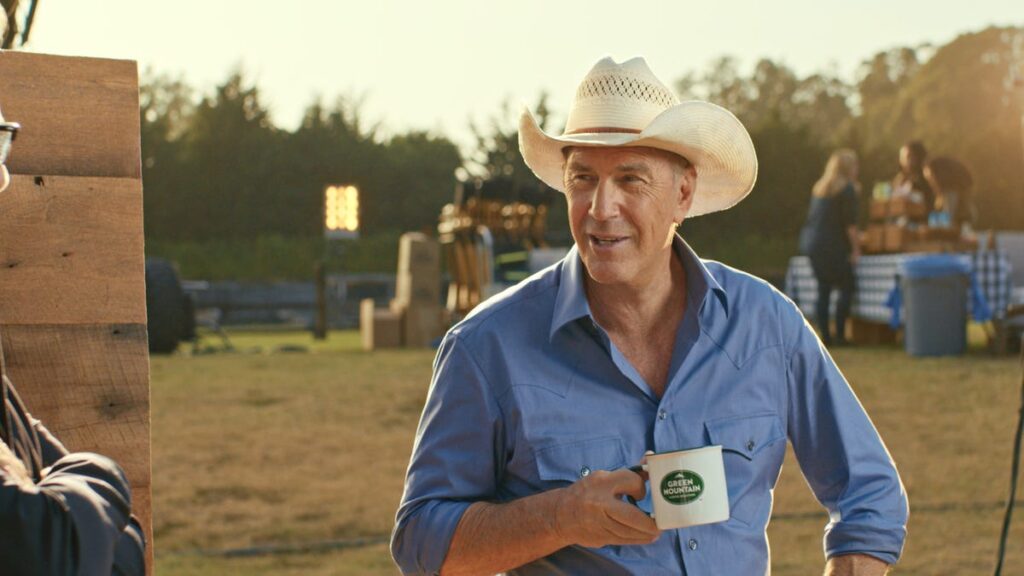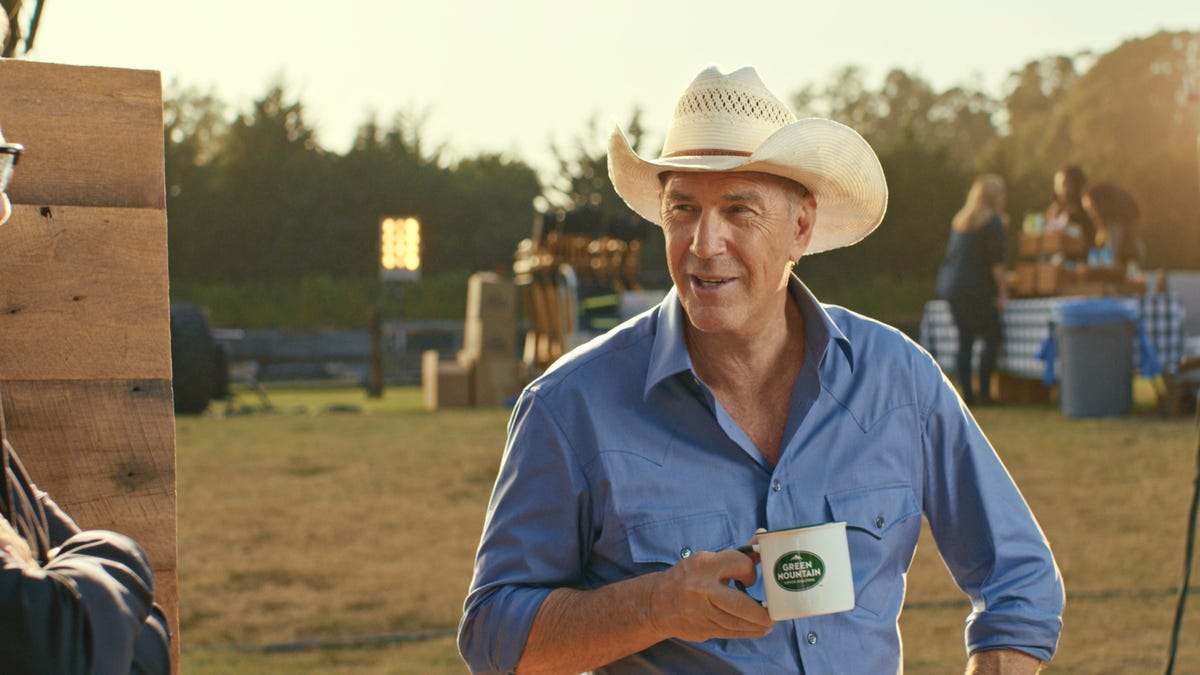
Who Owns Green Mountain Coffee? A Comprehensive Look
The aroma of freshly brewed coffee is a morning ritual for millions, and for many, that aroma comes from a cup of Green Mountain Coffee. But have you ever stopped to consider the origins of this beloved brand? More specifically, who owns Green Mountain Coffee? This article delves into the ownership history of Green Mountain Coffee, exploring its evolution from a small Vermont-based roaster to a global coffee powerhouse. We’ll uncover the key players, significant acquisitions, and the current corporate structure that shapes the company’s operations.
Understanding the ownership of a company like Green Mountain Coffee is crucial for several reasons. It provides insight into the company’s strategic direction, its commitment to sustainability and ethical sourcing, and its overall business practices. This knowledge allows consumers to make informed choices and understand the values behind the products they purchase. The story of who owns Green Mountain Coffee is intertwined with the broader history of the coffee industry, reflecting trends in consumer preferences, corporate mergers, and the ever-evolving landscape of the global marketplace.
The Early Days: Origins of Green Mountain Coffee
The story of Green Mountain Coffee begins in 1981, in the charming town of Waitsfield, Vermont. Founded by Bob Stiller, the company initially operated as a small, independent roaster, focused on providing high-quality, sustainably sourced coffee to local communities. This commitment to quality and ethical sourcing quickly set Green Mountain Coffee apart, establishing a loyal customer base and a reputation for excellence. This early foundation is critical to understanding the company’s subsequent growth and its eventual acquisition by larger entities.
From its inception, Green Mountain Coffee prioritized its commitment to fair trade practices and sustainable farming. This focus on ethical sourcing resonated with consumers and contributed to the brand’s growing popularity. The company’s early success was built on a foundation of providing a superior product while maintaining strong ethical principles. This commitment continues to influence the brand today, even under different ownership structures. The initial mission of Green Mountain Coffee, focusing on quality and ethical considerations, remains a significant part of its legacy.
Keurig Dr Pepper: The Current Owner of Green Mountain Coffee
The answer to the question of who owns Green Mountain Coffee today is Keurig Dr Pepper (KDP). In 2018, Keurig Green Mountain, Inc. (KGM) was acquired by JAB Holding Company and merged with Dr Pepper Snapple Group to form Keurig Dr Pepper. This merger marked a significant shift in the coffee company’s ownership structure and solidified its position within a larger beverage conglomerate. KDP’s extensive portfolio includes a wide range of beverage brands, reflecting its broad market reach and diverse consumer base.
Keurig Dr Pepper’s ownership has brought significant changes to Green Mountain Coffee, including increased resources for marketing, distribution, and product development. Under KDP, Green Mountain Coffee has been able to expand its market presence and introduce new product lines. While the brand’s commitment to quality and sustainability remains, the overarching goals are now aligned with the broader strategy of Keurig Dr Pepper. The acquisition by KDP has allowed Green Mountain Coffee to leverage the infrastructure and expertise of a major beverage company.
The Evolution of Ownership: Key Acquisitions and Mergers
The journey of Green Mountain Coffee from a small Vermont roaster to a part of Keurig Dr Pepper is marked by several key acquisitions and mergers. Before the merger with Dr Pepper Snapple Group, Green Mountain Coffee was acquired by Keurig, which was itself a publicly traded company. This marked a pivotal moment in the company’s history, as it expanded its reach and resources significantly. The merger with Keurig, and later the formation of Keurig Dr Pepper, demonstrates the trend of consolidation within the coffee and beverage industries.
The acquisitions and mergers have allowed Green Mountain Coffee to grow its distribution network, expand its product offerings, and increase its market share. These strategic moves have played a crucial role in shaping the brand’s identity and its position within the competitive coffee market. The evolution of ownership reflects the dynamic nature of the industry, where companies are constantly adapting to changes in consumer preferences and market conditions. The history of who owns Green Mountain Coffee is a clear example of this evolution.
The Impact of Ownership on Green Mountain Coffee’s Operations
The ownership structure of Green Mountain Coffee has a direct impact on its operations, including its sourcing practices, product development, and marketing strategies. Under Keurig Dr Pepper, the company benefits from economies of scale, allowing it to streamline its operations and reduce costs. Furthermore, KDP’s extensive distribution network ensures that Green Mountain Coffee products are readily available to consumers across the globe.
The company’s commitment to sustainability remains a key focus, with initiatives aimed at ethical sourcing, responsible packaging, and environmental conservation. KDP is committed to supporting these initiatives, recognizing the growing importance of sustainability to consumers. The influence of ownership extends to the company’s marketing efforts, which are now integrated into KDP’s larger branding strategy. This provides Green Mountain Coffee with greater resources and access to a wider audience.
Sustainability and Ethical Sourcing: Green Mountain Coffee’s Commitment
Even under its current ownership, Green Mountain Coffee maintains a strong commitment to sustainability and ethical sourcing. The company has implemented various programs to support coffee farmers, promote fair trade practices, and minimize its environmental impact. These initiatives are crucial for maintaining consumer trust and ensuring the long-term viability of the coffee supply chain.
Green Mountain Coffee’s commitment to sustainability extends beyond the sourcing of its beans. The company also focuses on responsible packaging, waste reduction, and energy conservation. These efforts reflect a broader trend within the food and beverage industry, where companies are increasingly prioritizing environmental and social responsibility. This commitment to sustainability is a key differentiator for the brand in a competitive market. The current owners of Green Mountain Coffee continue to emphasize these values.
Green Mountain Coffee in the Market: Brand Positioning and Competition
Green Mountain Coffee competes in the highly competitive coffee market, where it faces competition from both large multinational corporations and smaller, independent roasters. The brand’s positioning emphasizes its commitment to quality, sustainability, and ethical sourcing. This focus helps Green Mountain Coffee differentiate itself from competitors and appeal to consumers who prioritize these values.
The brand’s success in the market is a result of its strong brand identity, its commitment to innovation, and its ability to adapt to changing consumer preferences. The company continues to introduce new products and flavors to cater to evolving tastes. The brand’s relationship with Keurig has also been a significant factor in its market success. The brand’s market position is constantly evolving, influenced by consumer trends and competitive pressures.
Looking Ahead: The Future of Green Mountain Coffee
The future of Green Mountain Coffee is closely tied to the strategies and decisions of its parent company, Keurig Dr Pepper. As the beverage industry continues to evolve, Green Mountain Coffee is likely to adapt and innovate to meet changing consumer demands. The company’s success will depend on its ability to maintain its commitment to quality, sustainability, and ethical sourcing, while also leveraging the resources and expertise of its parent company.
The brand is well-positioned to capitalize on the growing demand for premium and ethically sourced coffee. The continued focus on innovation and product development will be crucial for maintaining its competitive edge. The future of who owns Green Mountain Coffee is less significant than the values and quality it represents. The brand’s legacy is built on these principles and will continue to shape its future.
Conclusion: The Ownership Story of Green Mountain Coffee
In conclusion, the answer to the question of who owns Green Mountain Coffee is Keurig Dr Pepper. The journey from a small Vermont roaster to a global brand is a testament to the company’s commitment to quality, sustainability, and ethical sourcing. The ownership structure has evolved over time, with key acquisitions and mergers shaping the brand’s identity and its position within the competitive coffee market.
Understanding the ownership of Green Mountain Coffee provides valuable insights into the company’s operations, its strategic direction, and its commitment to its core values. As the brand continues to evolve, its success will depend on its ability to adapt to changing consumer preferences and maintain its commitment to quality and ethical sourcing. The story of who owns Green Mountain Coffee is a dynamic one, reflecting the ever-changing landscape of the coffee industry.
[See also: The History of Coffee Production, Coffee Bean Varieties Explained, Best Sustainable Coffee Brands]


